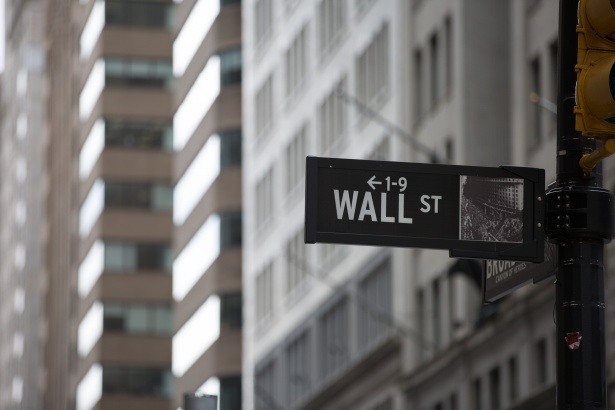GLOBAL MARKETS-Wall Street rebounds ahead of Fed, oil gains on Russia-Ukraine
The Fed's balance sheet roughly doubled in size during the pandemic to nearly $9 trillion, as it snapped up bonds to help keep longer-term interest rates down to support the economy. OIL HITS SEVEN-YEAR HIGH Growing tension as Russian troops massed on Ukraine's border have added to a risk-averse environment for investors, and pushed oil to the highest price since 2014. U.S. President Joe Biden said on Tuesday he would consider personal sanctions on President Vladimir Putin if Russia invaded Ukraine, as Western leaders stepped up military preparations and made plans to shield Europe from a possible energy supply shock.

U.S. stocks rebounded in initial trading Wednesday ahead of a Federal Reserve policy update, while ongoing tension between Russia and Ukraine helped pushed oil to a seven-year high.
U.S. stock index futures rallied on Wednesday ahead of the outcome of a Federal Reserve policy meeting, with rate hikes this year already priced in, while oil rose towards recent seven-year highs on tension between Russia and Ukraine. The Fed is due to update its policy plan at 2 p.m. EST (1900 GMT) after a two-day meeting. A first rate increase is seen in March, and three more quarter-point increases are expected by year-end.
The Dow Jones Industrial Average rose 1.31% shortly after the market open. The S&P 500 jumped 1.77% and the Nasdaq Composite climbed 2.24%, after dropping over 2% on Tuesday.. The MSCI world index rose 1.22%, European shares climbed 1.98% and Britain's FTSE 100 gained 1.95%.
"There is a good chance that the anticipation of rates hikes will end up being worse than the increases themselves. We went through a similar scenario back in 2016," wrote National Securities Chief Market Strategist Art Hogan in a note. "Once the Fed started the tightening, cooler minds took over, and the market had a great run in 2016 and 2017 while rates were moving up." U.S. stocks posted their worst week since 2020 last week. The MSCI index is also on course for its biggest monthly drop since the COVID-19 pandemic hit markets in March 2020, though analysts at Goldman Sachs said equities had not reached "danger zone" levels.
Sebastien Galy, senior macro strategist at Nordea Asset Management, said that given the recent volatility, he expected the Fed would be "far more cautious about the timing and pace of the balance sheet reduction and that will be welcomed by the equity market". The Fed's balance sheet roughly doubled in size during the pandemic to nearly $9 trillion, as it snapped up bonds to help keep longer-term interest rates down to support the economy.
OIL HITS SEVEN-YEAR HIGH Growing tension as Russian troops massed on Ukraine's border have added to a risk-averse environment for investors, and pushed oil to the highest price since 2014.
U.S. President Joe Biden said on Tuesday he would consider personal sanctions on President Vladimir Putin if Russia invaded Ukraine, as Western leaders stepped up military preparations and made plans to shield Europe from a possible energy supply shock. Brent crude rose 1.51% to $89.51 per barrel. It reached $89.50 on Jan. 20, the highest since October 2014.
U.S. crude rose 1.18% to $86.61 a barrel. Kristina Hooper, global market strategist at Invesco, said that if there was an invasion, "the ensuing sanctions against Russia could drive up the price of oil, which in turn could add to inflationary pressures in the short run."
However, Ukraine and Russia's government bonds rallied, with political advisers from Russia, Ukraine, France and Germany due to hold talks in Paris. Andriy Yermak, chief of staff to Ukraine's president, tweeted on his arrival in Paris that it was "a strong signal of readiness for a peaceful settlement." The dollar index, which tracks the greenback versus a basket of six currencies, rose 0.12%.
The yield on benchmark 10-year Treasuries was 1.7922%, off a two-year high of 1.9% hit last week. Gold prices ticked down to $1,833.79 per ounce, after hitting a 10-week high in the previous session.
(Additional reporting by Sujata Rao in London, Stella Qiu in Beijing and and Alun John in Hong Kong; Editing by Chizu Nomiyama and Marguerita Choy)
(This story has not been edited by Devdiscourse staff and is auto-generated from a syndicated feed.)
ALSO READ
Hong Kong detains and deports press freedom group staffer from city
Joe Biden hosts Japan's PM at White House, in strong message to China over policies in Indo-Pacific
China stocks rise as commodities shine; Hong Kong snaps winning streak
GLOBAL MARKETS-Asian shares fall on U.S. rate scare, yen plumbs 34-yr low
China stocks wobble on weak CPI; Hong Kong snaps 3 days of gains










